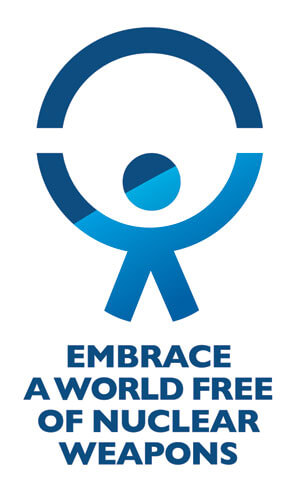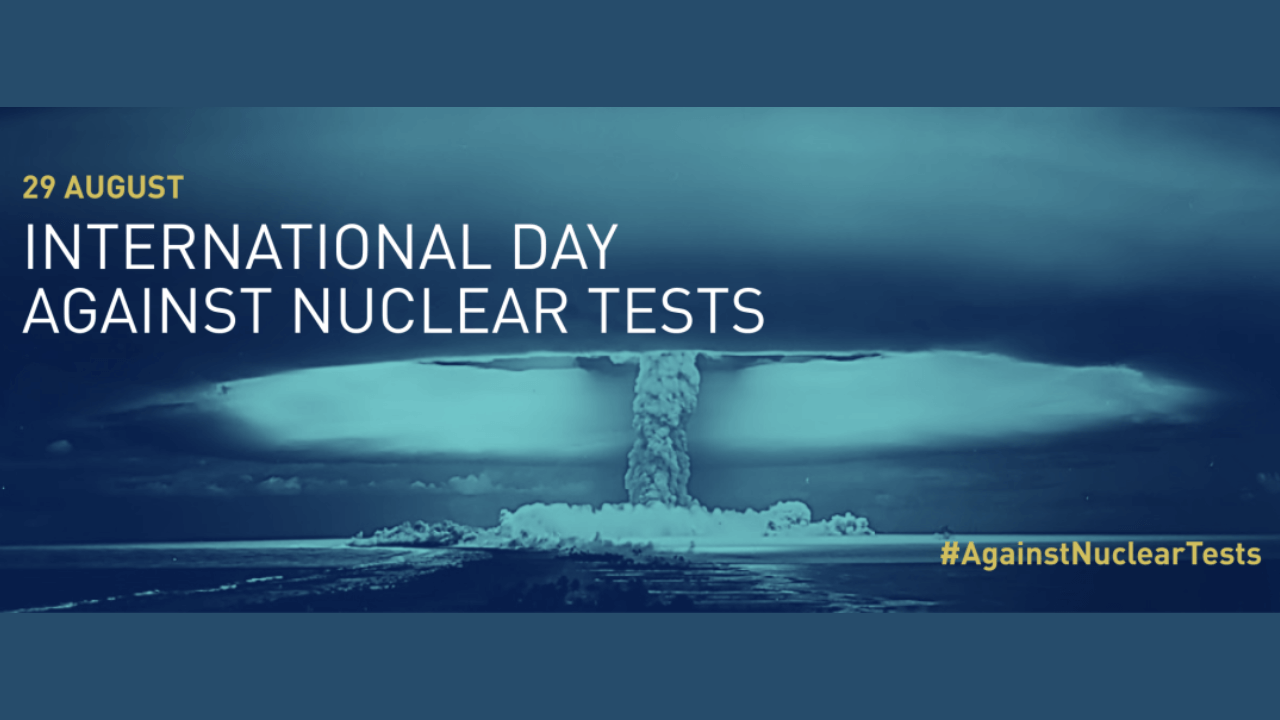International Day Against Nuclear Tests 2024
The International Day Against Nuclear Tests is observed annually worldwide on August 29th. This observance is dedicated to increasing awareness about the consequences of nuclear weapon test explosions and other nuclear explosions.
The main objective of the International Day against Nuclear Tests is to educate the public about the importance of preventing nuclear disasters to avoid catastrophic impacts on humanity, the environment, and the overall well-being of our planet. By recognizing this day, efforts are made to emphasize the significance of maintaining global peace and security by curbing the proliferation of nuclear weapons and promoting disarmament.
International Day Against Nuclear Tests Theme 2024
The official theme for the International Day Against Nuclear Tests in 2024 is “The Path to Zero: The Role of the United Nations in Nuclear Disarmament”.
Significance of International Day Against Nuclear Tests

The International Day against Nuclear Tests is an annual observance that is held on August 29 to raise awareness of the dangers of nuclear testing and to promote the elimination of nuclear weapons.
Nuclear testing is a major source of radioactive pollution. The radioactive fallout from nuclear tests can contaminate the environment and pose a serious health risk to people and animals. Nuclear testing can also lead to the spread of nuclear weapons technology.
The purpose of the International Day Against Nuclear Tests
The International Day against Nuclear Tests is a call to action for all people to work together to eliminate nuclear weapons and to create a safer world for future generations.
- Raise awareness of the dangers of nuclear testing
- Promote the elimination of nuclear weapons
- Support the victims of nuclear testing
- Promote the peaceful use of nuclear energy
The day is also an opportunity to call on governments to uphold their commitments to the Nuclear Non-Proliferation Treaty (NPT) and to work towards a world free of nuclear weapons.
History of International Day Against Nuclear Tests
Since the commencement of nuclear weapons testing on July 16, 1945, more than 2,000 such tests have occurred.
- In the early stages of nuclear testing, little consideration was given to the severe consequences for human life and the dangers of nuclear fallout resulting from atmospheric tests.
- The retrospective perspective of history has revealed the terrifying and tragic outcomes of nuclear weapons testing, especially when controlled conditions go wrong.
- This is especially true in the context of the even more potent and destructive nuclear weapons that exist today.
- On December 2, 2009, during the 64th session of the United Nations General Assembly, resolution 64/35 was unanimously adopted, designating August 29 as the International Day against Nuclear Tests.
- This resolution aimed to enhance awareness and education about the effects of nuclear weapon test explosions and the necessity of discontinuing such testing as a means to work towards a world free from nuclear weapons.
- The Republic of Kazakhstan spearheaded this resolution, along with numerous sponsors and cosponsors, as a way of commemorating the closure of the Semipalatinsk Nuclear Test site on August 29, 1991.
- The first observance of the International Day against Nuclear Tests took place in 2010.
- Since then, the day has been marked with diverse activities globally.
Another significant observance is the International Day for the Total Elimination of Nuclear Weapons, which was first observed in September 2014. The International Day against Nuclear Tests, combined with other events and actions, has contributed to fostering a global environment that advocates vehemently for a world without nuclear weapons.
Comprehensive Nuclear-Test-Ban Treaty (CTBT)
The Comprehensive Nuclear Test Ban Treaty (CTBT) serves as a global agreement that prohibits nuclear testing in all locations worldwide — be it on the surface, in the atmosphere, underwater, or underground. This treaty holds great significance as it not only aims to prevent nuclear testing but also obstructs the development of nuclear weapons. The creation of both initial nuclear weapons and their significant advancements, such as thermonuclear weapons, inherently require actual nuclear testing.
By imposing stringent restrictions on nuclear testing, the CTBT makes it extremely challenging for countries without nuclear weapons to develop them. Moreover, it also hampers the efforts of nuclear-armed countries to enhance or create new types of nuclear weapons. Additionally, the CTBT contributes to minimizing the harm inflicted on both humanity and the environment by nuclear testing.
The Treaty has yet to enter into force
However, despite its importance, the CTBT has yet to be fully implemented. For the CTBT to come into effect, all 44 specific States listed in the Treaty — those possessing nuclear technology capabilities at the time of the final Treaty negotiations in 1996 — must sign and ratify it.
Among these 44 States, eight have not yet completed this process: China, the Democratic People’s Republic of Korea (DPRK), Egypt, India, Iran, Israel, Pakistan, and the United States of America (USA). Among these, DPRK, India, and Pakistan have not yet signed the CTBT. As of July 2022, a total of 186 countries have signed the Treaty, out of which 174 have successfully ratified it.
History of Nuclear Tests
The history of nuclear testing began early on the morning of 16 July 1945 at a desert test site in Alamogordo, New Mexico when the United States exploded its first atomic bomb.
In the five decades between that fateful day in 1945 and the opening for signature of the Comprehensive Nuclear-Test-Ban Treaty (CTBT) in 1996, over 2,000 nuclear tests were carried out all over the world.
- The United States conducted 1,032 tests between 1945 and 1992.
- The Soviet Union carried out 715 tests between 1949 and 1990.
- The United Kingdom carried out 45 tests between 1952 and 1991.
- France carried out 210 tests between 1960 and 1996.
- China carried out 45 tests between 1964 and 1996.
- India carried out 1 test in 1974.
Since the CTBT was opened for signature in September 1996, 10 nuclear tests have been conducted:
- India conducted two tests in 1998.
- Pakistan conducted two tests in 1998.
- The Democratic People’s Republic of Korea conducted nuclear tests in 2006, 2009, 2013, 2016, and 2017.
29th August 2024 Special Day
On the global stage, August 29, 2024, holds significance as the International Day Against Nuclear Tests. This annual observance is committed to raising awareness about the severe consequences of nuclear weapon test explosions and other nuclear blasts. Let’s unite in promoting a world free from the threats posed by nuclear testing, emphasizing peace and the well-being of our shared global community.
- RBI SO Syllabus and Exam Pattern 2025 for Grade A and B
- RBI SO Eligibility 2025, Check Qualification & Age Limit
- RBI SO Exam Date 2025, Check Phase 1 Schedule for Grade A/B
- RBI SO Apply Online 2025 Before 31st July for 28 Vacancies
- RBI SO Notification 2025 Out for 28 Vacancies of Grade A & B
- Free SSC CHSL Topic Wise Tests for English, Quant & More, Attempt Now

Hello, I’m Aditi, the creative mind behind the words at Oliveboard. As a content writer specializing in state-level exams, my mission is to unravel the complexities of exam information, ensuring aspiring candidates find clarity and confidence. Having walked the path of an aspirant myself, I bring a unique perspective to my work, crafting accessible content on Exam Notifications, Admit Cards, and Results.
At Oliveboard, I play a crucial role in empowering candidates throughout their exam journey. My dedication lies in making the seemingly daunting process not only understandable but also rewarding. Join me as I break down barriers in exam preparation, providing timely insights and valuable resources. Let’s navigate the path to success together, one well-informed step at a time.






